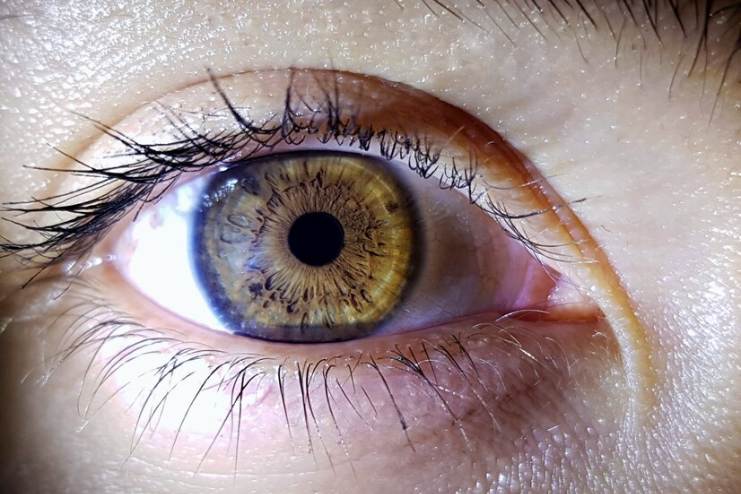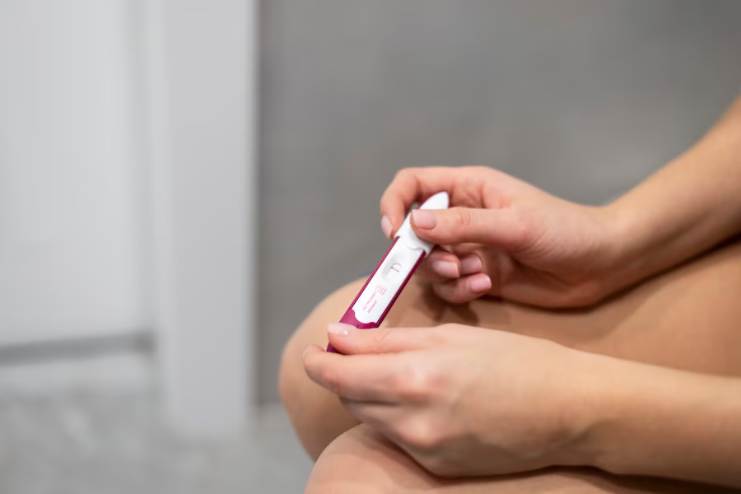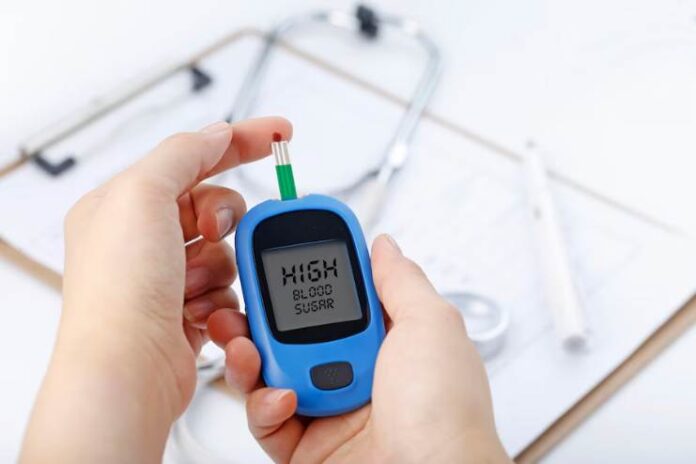Affiliate Disclaimer
Some links in this article are affiliate links. We may earn a small commission if you make a purchase through these links, at no extra cost to you. We only recommend products we find useful to our readersAccording to the CDC (R) over 100 million U.S. adults suffer from diabetes and prediabetes. Given the severity of this “chronically progressive” disease, it is important to keep know the symptoms and stay aware. While common symptoms like frequent urination and fatigue are well-known, there are several unusual symptoms that many individuals may not be aware of.
In medical terms, diabetes is a condition where the body either fails to produce enough insulin or produces it in excess. The former is known as Type 1 diabetes, and the latter as Type 2 diabetes.
Both conditions cause a sharp spike in blood sugar levels, leading to unregulated levels of blood sugar in the body. Since the CDC and leading diabetes associations characterize this condition as a chronic, progressive disease, it is crucial to identify the symptoms early on to potentially reverse its impacts.
The 16 Warning Signs of Diabetes
1. Darker Skin Patches

The presence of darker patches on the skin, a condition medically known as acanthosis nigricans (AN), is characterized by the appearance of dark patches, especially around the neck region. These patches often develop around the folds of the skin and can also be noticeable around the groin area.
Some people with diabetes have even reported a change in the texture of the skin on their neck, noting that it feels thicker. This is predominantly observed in patients with Type 2 diabetes. With high levels of insulin in the bloodstream, the skin cells regenerate faster than normal, leading to the appearance of these dark patches.
2. Worsening Vision

If you notice a progressive worsening of your vision, it could be a sign of diabetes, and it’s important to book an appointment with an ophthalmologist. Unregulated blood sugar levels can cause fluid imbalances, which may affect vision. This fluid accumulation can lead to swelling, blurry vision, and even impact the eye’s ability to focus.
3. Frequent Infection

While you might dismiss recurring infections as signs of seasonal viruses, dehydration, or the heat, the actual causes could be much more serious. Diabetes weakens the immune system, increasing the risk of recurring infections. Common types of infections include vaginal infections, yeast infections, bladder infections, and skin infections. Elevated blood sugar levels make it harder for white blood cells to move (R) through the bloodstream, making it more difficult for the body to fight off infections.
4. Infertility and Sexual Dysfunction

One of the most uncommon warning signs that diabetics often overlook is the possibility of erectile dysfunction, particularly in men with type-2 diabetes. The primary cause of this sexual dysfunction is the degeneration of nerves and blood vessels due to high blood sugar levels. In women, sexual dysfunction may manifest as a lack of libido and insufficient lubrication.
5. Light-Headedness

Light-headedness can occur in various situations. While fatigue and hunger are common causes, they are not the only reasons. Diabetes is one of the most common causes of light-headedness, and contrary to popular belief, it is not just a sign of low blood sugar. People with high blood sugar can also experience dizziness.
One of the main reasons for this is frequent urination. The more you urinate, the more likely you are to become dehydrated, which can lead to light-headedness. Dehydration directly affects brain function, causing light-headedness and potentially impairing concentration and memory.
6. Unexplained Weight Loss

If you live with or know someone who is diabetic, you may notice that they tend to lose weight quickly, and without trying. Impaired insulin function makes it difficult for the body to use blood sugar for energy. As a result, the body starts burning fat and muscle mass instead. This is one of the main reasons behind sudden weight loss in diabetics.
7. Mood Swings

One of the lesser-known symptoms of diabetes is mood swings and emotional changes. Unmanaged diabetes can lead to rapid shifts in mood. If you’ve been experiencing frequent episodes of mood swings and irritability, one of the best ways to address this is by managing your blood glucose levels.
8. Itchy Skin

Persistent itching could be an unusual sign of undiagnosed diabetes and affects individuals more frequently than expected. Diabetes can damage nerve endings and affect skin texture. Damage to blood vessels or nerve endings is a common sign of undiagnosed diabetes. Additionally, poor blood circulation due to diabetes can lead to dry skin, which contributes to itching.
9. Diabetic Neuropathy

One common issue with undiagnosed diabetes is diabetic neuropathy. This condition causes nerve damage when diabetes is not diagnosed or treated. People with diabetic neuropathy often experience a constant dull ache in their limbs, along with tingling and numbness.
10. Fruity Breath

One often overlooked but common symptom of diabetes is diabetic ketoacidosis. This condition occurs when fats in the body are broken down to produce ketones, which are acid compounds. These ketones are also produced when following a low-carb diet like the keto diet. Excess ketones are usually expelled through urine, but they can also cause a fruity-smelling breath, similar to acetone or nail polish remover. If not diagnosed and treated promptly, diabetic ketoacidosis can lead to serious health complications.
11. Nausea and Vomiting

These symptoms are rare and occur in only a few diabetics. Persistent discomfort, nausea, and vomiting, especially when paired with light-headedness, should be taken seriously. These issues can be caused by diabetic neuropathy, which affects nerve function and can disrupt the gastrointestinal (GI) tract, leading to nausea and discomfort. If you experience these symptoms, seek immediate medical advice.
12. Dry Mouth

Unregulated blood sugar levels directly affect blood circulation and salivary flow, which can result in a dry mouth and make your mouth feel extremely parched. This condition is common with diabetes medication and can lead to further oral problems, such as gum disease and tooth decay.
13. Vaginal Itching

In women, unusual and early signs of diabetes can include vaginal itching and discomfort. Yeast infections are a common issue that may signal diabetes. It’s essential to consult a doctor for a proper diagnosis and treatment.
14. Delayed Wound Healing

Our body naturally heals wounds, but if your wounds take longer than usual, it could be a sign of Type-2 diabetes. This happens because high blood sugar levels (hyperglycemia) can reduce oxygen supply to the wound and impair the immune system, leading to delayed healing.
15. Daytime Napping

Being diabetic can significantly affect your energy levels. Studies (R) have shown that individuals who take daytime naps longer than an hour may be at higher risk for developing Type-2 diabetes. While longer naps do not directly indicate diabetes, they can signal a higher risk factor for the condition. Additionally, extended daytime napping might also be a sign of sleep apnea, depression, or sleep deprivation, which can further increase the risk of developing diabetes.
16. Increased Hunger

People with diabetes often struggle to stay energized due to insulin resistance and issues with glucose breakdown in the body. Even after a proper meal, they might still feel hungry a few hours later because glucose takes longer to metabolize in diabetics. This delayed metabolism is why diabetics frequently experience hunger.
Importance of Early Diagnosis

Early diagnosis of diabetes is crucial because the disease is often undiagnosed until it becomes severe. Recognizing and addressing symptoms promptly helps in managing the condition more effectively. If you notice any symptoms, consult your family physician immediately.
Early treatment can lead to better control and regulation of the disease, and in some cases, lifestyle changes and proper blood sugar management can even reverse the condition. Without timely diagnosis and treatment, diabetes can lead to serious complications, including heart disease, stroke, kidney failure, eye disease, and severe vision loss.
Addressing symptoms quickly is essential. The sooner you consult a doctor, the sooner you can start treatment and improve your health. Don’t ignore symptoms; seek medical advice to ensure timely intervention and better management.
Conclusion
Recognizing the unusual signs and symptoms of diabetes is essential for timely diagnosis and effective management. Many individuals overlook or dismiss these symptoms, leading to delays in treatment and potentially severe health complications. Staying informed about the lesser-known warning signs and understanding the importance of early intervention, you can take proactive steps toward better health.
If you or someone you know is experiencing any of the symptoms discussed, it’s crucial to consult a healthcare professional promptly. Early diagnosis allows for early treatment, which can significantly improve the quality of life and reduce the risk of severe complications. Remember, managing diabetes effectively involves not just medical treatment but also lifestyle changes and vigilant monitoring.
Don’t wait for symptoms to worsen—take charge of your health today by seeking medical advice and making informed decisions. Addressing these signs early can lead to better outcomes and a healthier future.
-
May 2020Written by Somapika D
-
Sep 2024Edited by Ankita
In this Article


















